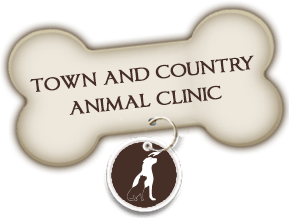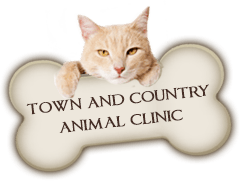Canine Parvovirus is one of the most common and severe gastrointestinal diseases of dogs. Parvovirus most frequently attacks puppies younger than one year of age. The virus is extremely contagious and strikes rapidly and without warning. While most infected adult dogs recover, as many as 25% to 50% of infected puppies die from the disease if not diagnosed and treated immediately.
Dogs become infected with the virus through contact with the stool of an infected dog or a contaminated environment. The virus is very hardy and remains infective in the environment for a long time. Once the virus enters your pet’s body, it multiplies in the bone marrow, intestinal tract and immune system. As the virus matures and reproduces over approximately 5 days, it can cause life-threatening damage to your pet’s immune system and intestinal tract. Without fast diagnosis and treatment your pet may die from this virus.
Parvovirus causes severe and often bloody diarrhea and vomiting. Infected animals rapidly dehydrate, and severe cases progress to shock and death. Other symptoms include lack of appetite, lethargy or listlessness, vomiting, fever, a pot bellied appearance and profuse diarrhea. Occasionally Parvovirus attacks the heart muscle of puppies and can cause sudden death. Fatalities occur mostly in puppies less than 12 weeks old.
Early diagnosis is critical to providing immediate and life saving treatment. A simple Parvo Antigen Test will let us know within 30 minutes if your dog is positive for this disease. The combination of symptoms can vary, therefore, Parvovirus is difficult to diagnose based on symptoms alone. Once your dog is exposed to this virus it may take 6 to 10 days before it starts showing signs. Your dog will be contagious to other animals for 7 to 14 days after being exposed to the virus.
Treatment is primarily aimed at correcting dehydration and preventing fatal infection. For a mildly affected case, such as an adult dog, they can be treated with outpatient therapies. For a severely affected pet, such as a young puppy, they generally require hospitalization. Treatment for these cases normally involves intravenous fluids to prevent dehydration, maintain normal electrolyte and glucose levels and also to administer antibiotics. Sometimes it is also necessary to treat your pet with anti-nausea medication. Puppies in this state require attentive nursing care and that is why your pet will be hospitalized during this treatment.
There are some breeds of dogs that are more prone to contracting this virus, such as Rottweilers, Doberman pinschers, Pit Bulls, Labrador Retrievers, German Shepherds, English Springer Spaniels and Alaskan Sled Dogs.
The best prevention for this virus is a series of three vaccines when your pet is between the ages of 6 weeks to 16 weeks. After that your dog will only require a yearly vaccine to maintain his/her immunity. Although, the vaccine does not provide immediate immunity, so your puppy should be kept isolated until after their second booster vaccine. Parvovirus is a highly resistant virus and can remain in the environment for many years. If your pet is exposed to the virus, you can disinfect your pets environment with a 1:30 bleach solution.
If you have any further questions or need assistance, do not hesitate to call Town and Country Animal Clinic at 519-250-0099.






